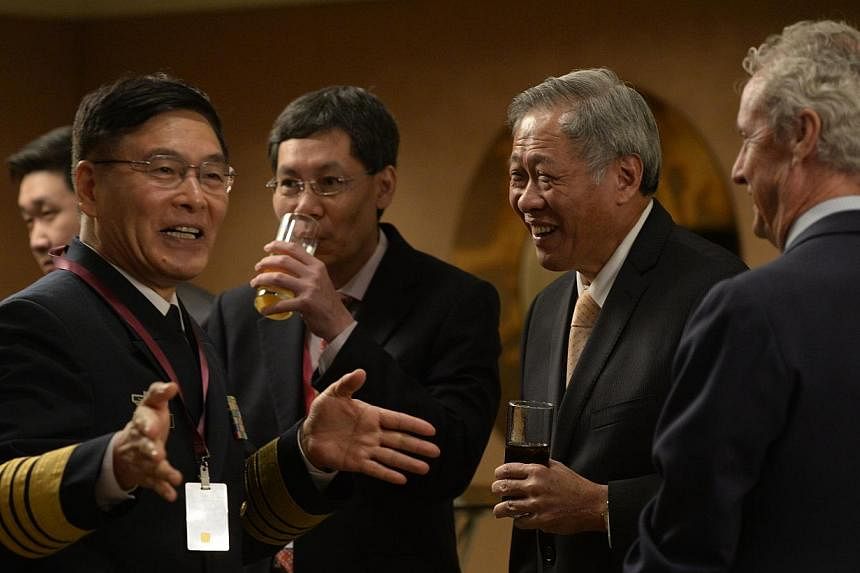
CHINA declined to rule out declaring an air defence identification zone (ADIZ) over the contested South China Sea, and said a decision on the matter would depend on its assessment of its security needs in the area.
"Whether we will establish an ADIZ in the South China Sea will depend on whether our security in the maritime and air area is threatened and to what extent," Admiral Sun Jianguo, who led his nation's delegation to the annual Shangri-La Dialogue, said yesterday.
China's massive reclamation works in the disputed areas of the South China Sea in recent months have led to concerns that it might, in time, declare such a zone, as it had done in 2013 over the East China Sea, where it is tussling with Japan over the sovereignty of the Senkaku/Diaoyu islands.
Adm Sun, who is also Deputy Chief of General Staff in the People's Liberation Army, was responding to a question that followed his speech on the final day of the three-day gathering of defence ministers and security chiefs.
In keeping with the even-handed tone of US Defence Secretary Ashton Carter, who was measured in his criticism of China on the second day of the summit, Adm Sun focused mainly on China's security cooperation in the region.
This ranged from disaster relief to joint exercises to participation in multilateral security platforms such as the Asean Regional Forum and Asean Defence Ministers' Meeting-Plus.
Adm Sun stressed China's win-win security policy even as he reiterated that the reclamation works "fall well within the scope of China's sovereignty and are justified, legitimate and reasonable".
He added that these works made no change to China's claims in the South China Sea or its position on the peaceful resolution of disputes through negotiation and consultation.
He also sought to allay international concerns that China was challenging the freedom of navigation in the busy waterway, saying this was not affected in any way by the reclamation.
"The situation in the South China Sea is, on the whole, peaceful and stable and there's never been an issue with the freedom of navigation," he said.
However, the audience appeared unconvinced with his remarks and Adm Sun was peppered with several questions, most of which centred on the South China Sea.
He gave brief answers within the 10 minutes allotted him - he was sharing the podium with the defence ministers from New Zealand and Germany - which left his audience dissatisfied.
"He had no intention to answer the questions posed to him. China is not willing to listen to the region's concerns and address them," said Ms Bonnie Glaser, a China expert at the Centre for Strategic and International Studies, a Washington-based think-tank. "I think this is very, very worrisome."
Philippine congressman Francisco Ashley Acedillo said unwillingness by the Chinese to engage the questioners "tells me they probably know, although they will not admit it, that they are not on sure footing" in terms of international law and accepted international norms.
"How can you establish trust and cooperation when we in the Philippines view China as basically saying one thing and then doing another?" he said.
Still, Ms Glaser expressed the hope that "the Chinese who participated in this event took very
careful notes, that they will take some of these messages back to China and think through their policies".
- SEE OPINION

